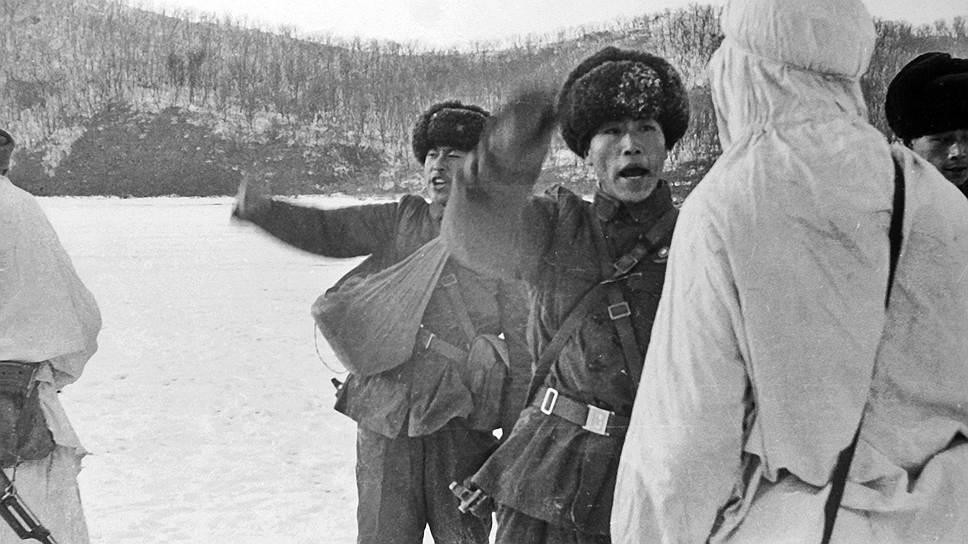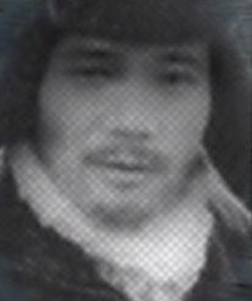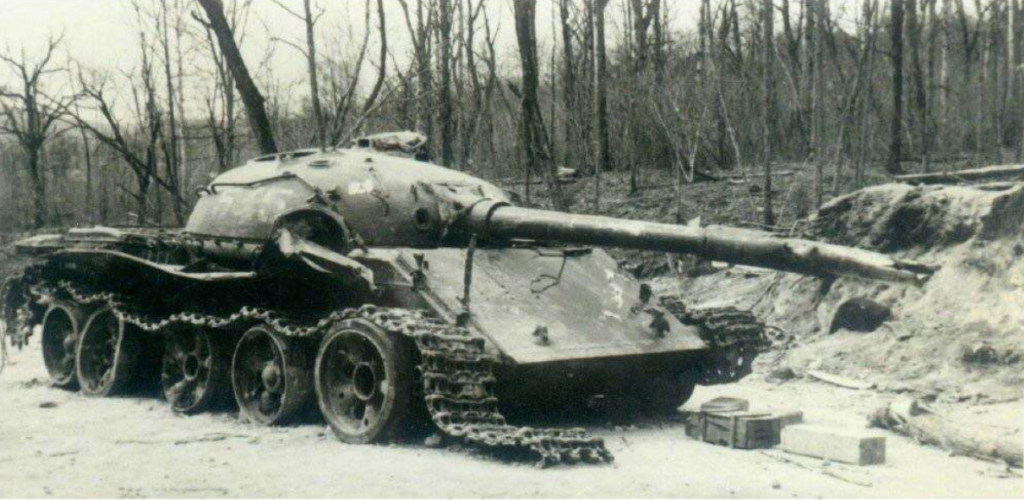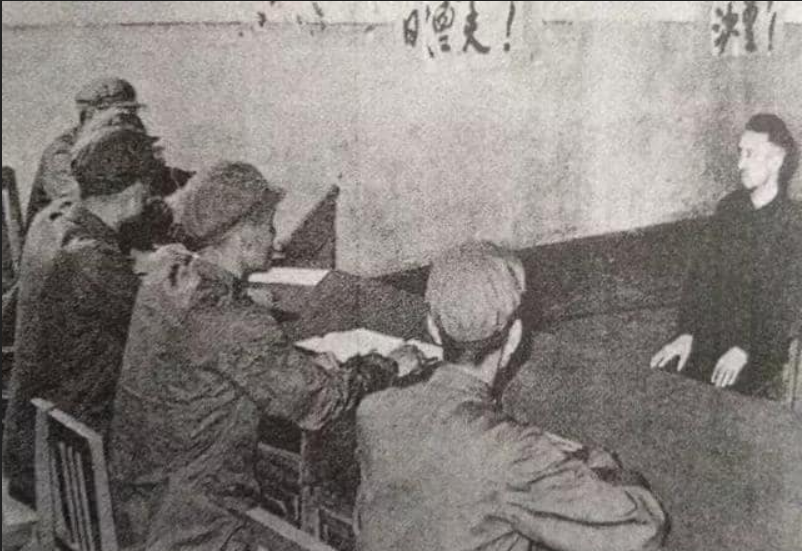
Between March 2nd and 17th of 1969, units of the Soviet Border Guard and Chinese People’s Liberation Army engaged in a series of skirmishes on Zhenbao (Damansky) Island in the Northeast Chinese-Soviet border over a dispute of the island’s ownership. Over the course of this small conflict the Chinese were able to disable a Soviet T-62 (numbered “545”) main battle tank, which was at that time a relatively modern design closely guarded by the Soviets. Several attempts were made by the Soviets to prevent its capture by the Chinese, using demolition teams to blow up the tank or bombarding it with artillery to sink it. The latter would have some degree of success as it sunk the tank into an ice river below. Nonetheless, the T-62 was eventually retrieved once the ice melted and was to be sent to Beijing for study. Though the Soviets were no longer able to recapture the tank militarily, they had one last trick in the hat: sending a trained Chinese criminal back to China to blow up the tank.

The details of Dou Xiangsong’s (窦祥松) early life are scarce but it is known that he was born in Hulinzhen, Heilongjiang Province near the Sino-Soviet border to Dou Shunren (窦顺仁), a vicious landlord known for bullying and terrorizing his tenants during the Manchoukuo regime. Upon the Communist victory against the Nationalist government in 1949, Dou Shundren was executed as a result of his crimes against the people. With no education and a very poor influence in his childhood, Dou Xiangsong also turned to the life of crime. A buildup of petty crimes such as sexual harassment and stealing lead to his arrest in 1958, where he then spent the next three years in jail. Once released in 1961, he returned back to his home village. Being a known criminal, he frequently got into disputes with his neighbours. One particular woman Dou had a grudge with was Zhang Xiuying (张秀英), the village’s Health Director (some sources state that Zhang was also responsible for watching Dou due to his criminal status). One night in 1967, Dou entered the house of Zhang and beheaded her along with her husband. Murder was no petty crime, and would have likely resulted in Dou’s execution. To escape this fate, he swam across a river through the border of the Soviet Union. Though soon being caught by Soviet Border Guards, the Soviets decided that he had the potential of being a useful asset against China and was thus giving special training by the KGB. The relations between China and the Soviet Union were relatively poor in the late 1960’s due to the personal and ideological disagreements between Mao Zedong and Nikita Khruschev a few years back, and the training of Chinese assets for use against China seemed like an obvious advantage for the Soviets. The capture of a then-secret Soviet T-62 tank in the aftermath of the Zhenbao Island dispute gave the KGB a purpose for Dou.
On May 2nd, three divers of the Chinese Navy were able to successfully attach hooks to the sunken T-62 after the ice melted and tow it ashore with the help of trucks. Two days later, Dou was called out from a hunting trip and ordered to report to the KGB headquarters. He was briefed by a KGB officer in fluent Chinese about how China had “robbed” a T-62 from the Soviet Union, and how they intended to ship it to Beijing and steal its technology. He was given the task of returning back to China and blowing up the T-62, which was still near Zhenbao Island awaiting transport to Beijing. On May 8th, Dou was secretly smuggled back into China along with a bag of two high explosive blocks by Soviet Border Guard troops through Urussi River, about ten kilometres away from Zhenbao Island. His task was to pass by Lake Khanka into Hulinzhen, and then pass by a few villages to reach the road and blow up the truck carrying the T-62, where he then would presumably use the second explosive block to blow up the T-62 itself.

On the second day after returning to China, Dou stopped a tractor driver near Lake Khanka and paid him for a ride. With the offer of ten Yuan, the tractor driver gladly let him ride in the back. Though it may not seem like much money, ten Yuan made up one-third of a tractor driver’s monthly salary during that time. Also in the back of the tractor were two other passengers, a fifty year old man named Zhuang Shubao (庄树宝) and a thirty year old woman assigned to assist the tractor driver. Though the three got along initially, Zhuang would soon become suspicious of Dou when he dozed off for a nap. As fate would have it, twenty six years earlier in 1935 Zhuang used to work for Dou’s father (Dou Shunren) as a rickshaw driver. In one instance, he was ordered to drive around one of Dou Shunren’s whores (referred to in sources as “Yi Zhihua” / “一枝花”, meaning “a flower”). Though Zhuang did his duty well, Yi slipped one time while getting off of the rickshaw and blamed it on Zhuang. She then promptly reported it to Dou Shuren. Zhuang was stripped naked and tied to a tree to be killed by insects and nature. Fortunately for him, one of the thugs that tied him up was a relative of his, and because of that, he was secretly passed a small porcelain shard and was able to cut himself free and escape. Despite never meeting Dou Xiangsong, the mannerisms of how he spoke and acted reminded Zhuang greatly of Dou Shunren and thus gave him reason of suspicion. Once Dou Xiangsong was let off the tractor, Zhuang decided to report him to the local police station. In response, the local police station immediately set out to find and capture Dou. Fortunately for them, Dou was easily found with his bag of explosives and confessed to being a KGB agent quite quickly.

Dou was imprisoned and questioned for the next four months, with his sentence being passed in late September. He was condemned to death by firing squad and likely provided the Chinese with information of his KGB training. However, the details of his interrogation are scarce, and it really isn’t known how much information he divulged. Nonetheless, his capture marked the end of the Soviet Union’s final attempt to prevent China from keeping their lost T-62 tank. The story of Dou Xiangsong was a dishonorable one, from being a petty criminal to a murderer and a traitor. The Chinese would later on successfully transport the T-62 to Beijing, and military experts was able to study its design and mechanisms. The true extent of the T-62’s influence on Chinese indigenous tank design is disputed, but it undoubtedly provided them with valuable information.


Good stuff here I shall show my class after the break
Curious; how did Dou Xiangsong get away from his 1949 execution?